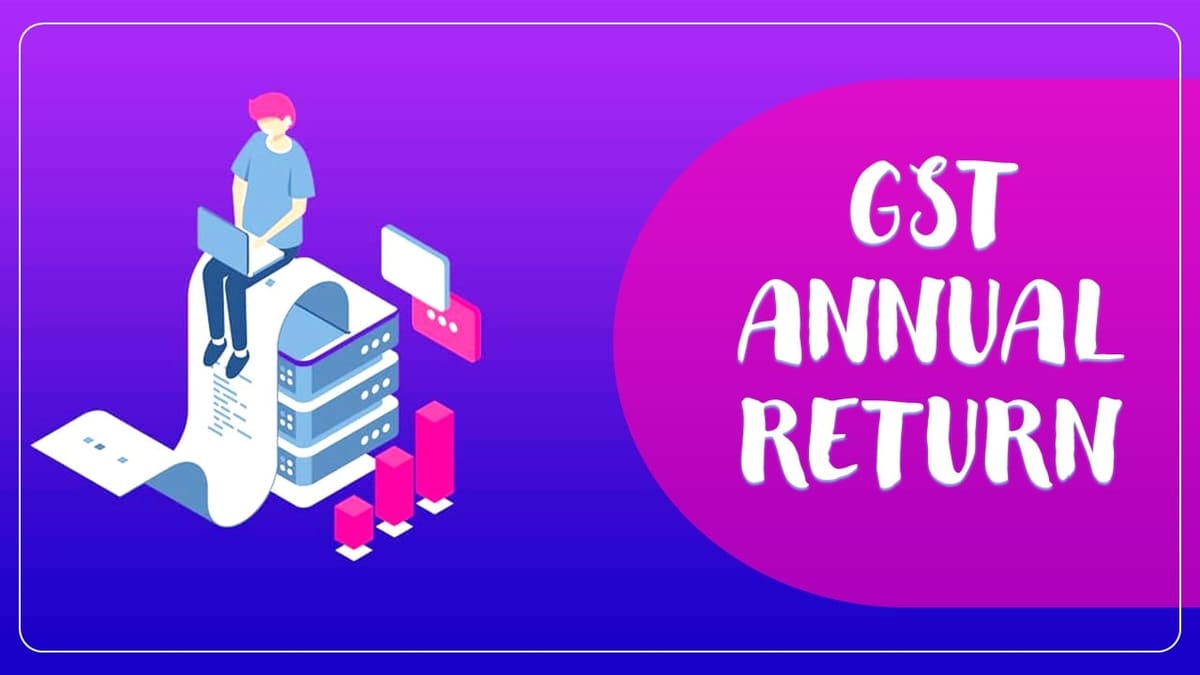Priyanka Kumari | Oct 31, 2023 |

ICAI issued Technical Guide on GST Annual Return
The Institute of Chartered Accountants of India (ICAI) has issued a Technical Guide on GST Annual Return (Form GSTR 9).
Goods and Services Tax (GST) completed its illustrious six years journey in India on 1st July, 2023. During this period, the new indirect tax regime has been continually evolving with ongoing refinements and amendments. The Government has been working to address concerns raised by businesses and simplify compliance procedures. The GST Council has been meeting regularly to discuss changes in tax rates, exemptions, and other aspects of the GST structure. The rising GST revenues and growing taxpayers are a testament to the success of this transformative tax regime.
The GST and Indirect Taxes Committee has developed a publication namely, “Technical Guide on GST Annual Return (Form GSTR 9)” for the benefit of members. This publication is designed to provide in-depth information, guidance, and updates about provisions of GST law relating to annual return filed in Form GSTR-9. The related provisions have been compiled in the publication in an easy to understand language. Further, the publication provides a table wise discussion of Form GSTR-9 (Annual return) outlining the optional fields, mandatory fields as well as the potential sources for gathering information to fill a particular table.
Goods and Services Tax (hereinafter referred to as GST), a consumption based value added tax is the tax levied on the supply of goods or services or both. Unlike the erstwhile tax regime, where the tax was collected by the State where the supplier is registered, at present taxes are passed on to the State which consumes it. This was done with the noble motive of making India a single market which was possible only by simplifying the following procedures in indirect taxes:
(a) Abolish the requirement of forms for availing the Tax/ Duty benefits by allowing the recipient to avail input tax credit (“ITC or input tax credit”).
(b) Levying taxes at all points in the supply chain, with credit for taxes paid on goods or services or both, acquired for use in making the further supply.
(c) Free flow of goods by removing the check post system and increasing the efficiency of the logistics industry.
(d) Restricting the exemptions otherwise permitting the ITC to the recipient and allowing the recipient to apply for the refund in eligible cases.
(e) Moving towards progressive tax law by introducing multiple taxes for the same goods but different values.
(f) Automation of refund process.
(g) Standardizing the requirement in the document issued by the supplier.
(h) Standardizing requirement of the records to be maintained in every registered principal place of business.
(i) Simplifying the process of payment of taxes and filing of periodic returns.
(j) Permitting rectifying of the error, omission, and commissions in the periodic returns and permission to make the short payment voluntarily arising due to the above-referred reasons.
This is because section 73 of the Central Goods and Services Tax Act, 2017 (“the CGST Act”) provides a unique opportunity of self – correction to the registered person, i.e. if a registered person has not paid, short paid, or has erroneously obtained/ been granted a refund or has wrongly availed or utilized ITC then before the service of a notice by any tax authority, the registered person may suo motto pay the amount of tax with interest, if any.
One has to note that GST, as heralded, is one of the most noteworthy indirect tax reforms in India and like in past this law also followed the self-assessment subroutines, where the registered person will have to compute his monthly tax payout, declare the same by filing a simplified monthly return in Form GSTR-3B and pay it online. However, If the registered person had opted for QRMP scheme, he would pay taxes monthly, as per the scheme, and file a simplified quarterly return.
To ensure the correctness and veracity of the reported information in the said returns filed during the year an opportunity is provided to the registered person, to collate the data, assure its correctness and files an annual return. This stage is considered to be the final and the particulars filed by him at this stage will be taken up for further processing by the department for assessments, audit, investigation, etc.
All registered persons, except for a few specified categories of persons, are required to file GST annual return for every financial year.
To Read More – Click Here
In case of any Doubt regarding Membership you can mail us at [email protected]
Join Studycafe's WhatsApp Group or Telegram Channel for Latest Updates on Government Job, Sarkari Naukri, Private Jobs, Income Tax, GST, Companies Act, Judgements and CA, CS, ICWA, and MUCH MORE!"